Femia > Health Library > Your cycle > Health > Pfizer COVID vaccine lawsuit and its implications for pregnancy
Pfizer COVID vaccine lawsuit and its implications for pregnancy
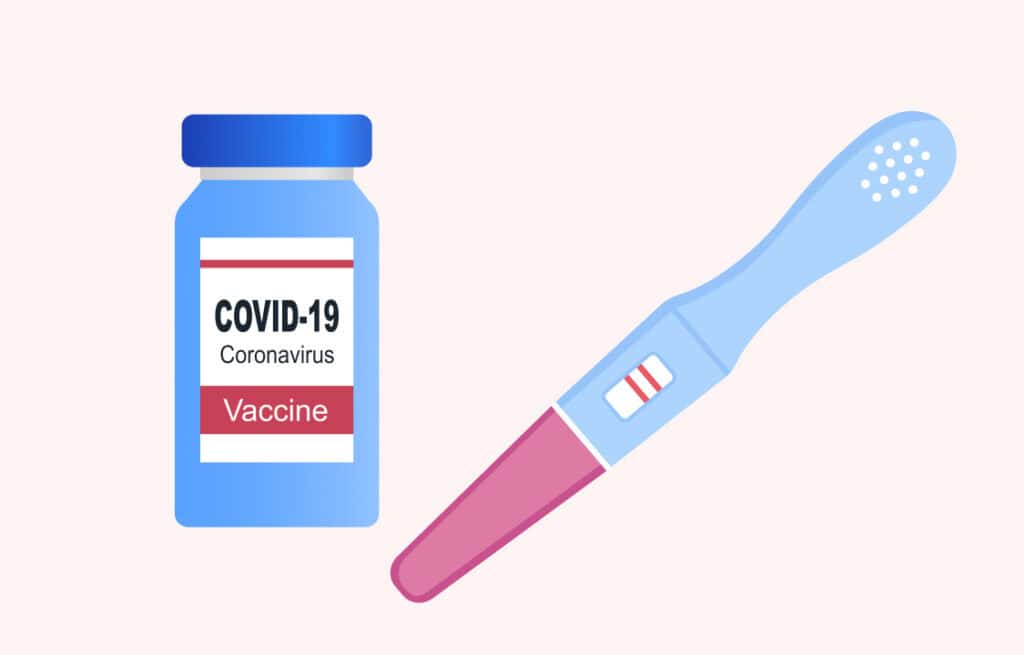
- Updated Feb 10, 2025
- Published
CRAFTED BY HUMAN
Crafted by human At Femia, we provide accurate and up-to-date information at every stage of your journey, from trying to conceive, pregnancy and postnatal support. All content is created by a real person based on in-depth research and own professional experience. Femia ensures that you will receive expert advice, strict accuracy and a personalized approach from our authors/medical experts. Learn more about our editorial policy.
FACT CHECKED
Fact checked At Femia Health, we maintain the highest standards of editorial excellence in delivering content focused on helping you conceive, guiding you through pregnancy, and supporting you postpartum. Explore our content review principles to learn how we ensure the accuracy and quality of our health and lifestyle tips for every stage of your journey.
The state of Kansas has filed a lawsuit against pharmaceutical giant Pfizer for allegedly “misleading the public” about the safety and effectiveness of its COVID-19 vaccine. The lawsuit claims that Pfizer concealed information about serious “adverse effects” linked to the vaccine—including in pregnancy—overstated how effective it was, and censored critics.
So far, there is no evidence to suggest that the Pfizer vaccine is unsafe for pregnant women.
The US state of Kansas has filed a lawsuit against the pharmaceutical company Pfizer Inc. for allegedly misleading the public about the safety and efficacy of its COVID-19 vaccine.
The Pfizer vaccine lawsuit was launched amid claims that “Pfizer misled the public that it had a ‘safe and effective’ COVID-19 vaccine,” violating the Kansas Consumer Protection Act.
The 69 page lawsuit states that Pfizer concealed safety information about the COVID-19 vaccine from the public, including evidence that the vaccine is connected to serious adverse events like miscarriage and inflammation of the heart.
However, Pfizer’s claims about the safety and efficacy of the vaccine were based on data that were reviewed and approved by regulatory agencies, including the FDA. The FDA has verified and supported these claims, as highlighted in their press release.
Pfizer has vehemently denied these claims, stating that the lawsuit has “no merit” and that “representations made by Pfizer about its COVID-19 vaccine have been accurate and science-based.”
This is not the first time that a COVID-19 vaccine has come under scrutiny, and global confidence in vaccinations is at a 30 year low following the COVID pandemic.
Read further to understand whether there is any evidence behind these claims and how getting the Pfizer vaccine could affect you, whether you already have or are still considering it.
Pfizer COVID vaccine lawsuit overview
The Pfizer vaccine lawsuit filed by the Republican Attorney General (AG) for Kansas, Kris Kobach, alleges that Pfizer Inc. misrepresented how safe and effective their COVID vaccine was and “concealed critical safety information” from the general public, along with key information about how effective the vaccine is.
The state of Kansas is looking to hold Pfizer “accountable for falsely reporting the benefits” whilst “concealing and suppressing the truth” about the vaccines safety, effectiveness, and ability to prevent transmission. It claims that Pfizer’s actions violated the Kansas Consumer Protection Act and is seeking unspecified monetary compensation.
According to the complaint, the vaccine, which was developed with German partner BioNTech, allowed Pfizer to earn a “record company revenue” of $75 billion in just two years. BioNtech has not been named as a defendant in the suit.
AG Kris Kobach also alleges that Pfizer worked to silence critics on social media who questioned the vaccine in order to “keep the public from learning the truth.”
Claims that Pfizer falsely reported the benefits of their vaccine need to be backed up with strong evidence that contradicts the extensive data supporting the vaccine’s approval. This data, which shows the vaccine’s positive impact on public health, has been reviewed by multiple regulatory bodies worldwide.
The outcome of this COVID vaccine lawsuit will likely determine future litigation around the COVID vaccines. If successful, then not only will Pfizer have to pay out a substantial compensation; it will open the floodgates for litigation against the COVID vaccines, the companies that developed them, and the governments that gave mandates for them.
Even if this lawsuit is not successful, it brings debate around the COVID vaccines back into public focus. This could encourage scientific debate and enable unfounded myths to be debunked, or it could lead to the dangerous spread of misinformation. Only time will tell.
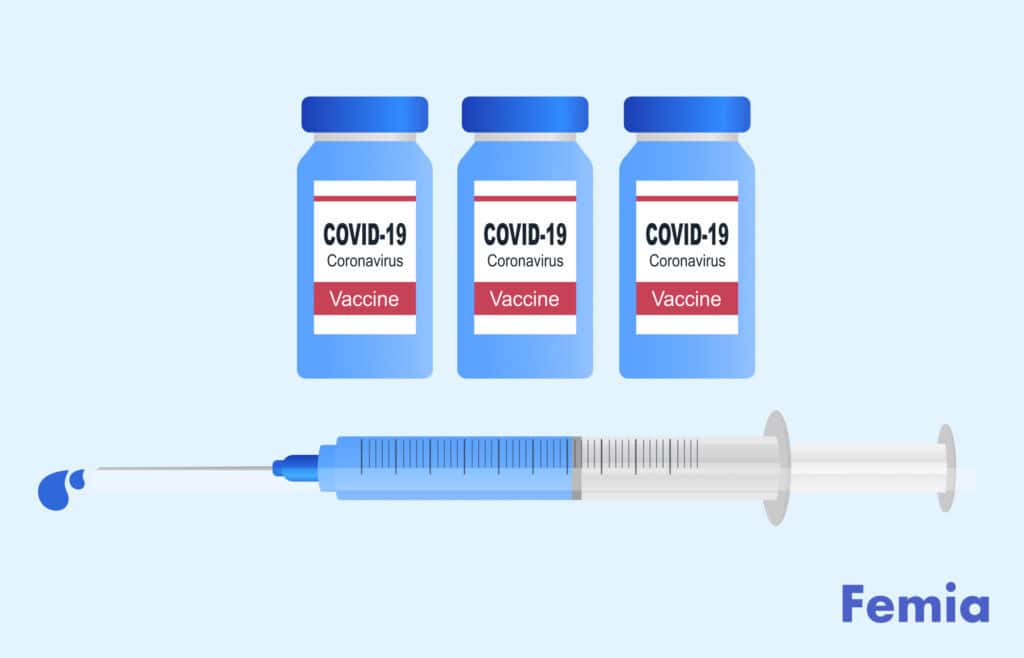
Detailed analysis of the lawsuit
The Kansas lawsuit makes several allegations against Pfizer and provides examples and evidence to support the claims. The reliability and relevance of this evidence will be examined in court.
To understand the most important allegations in the Pfizer vaccine lawsuit, we’ll list and explain some of the most significant claims made by AG Kris Kobach.
Claim: Pfizer's trials only provided limited safety information
According to the lawsuit, “Pfizer’s vaccine trials provided limited safety information because Pfizer tested only healthy individuals.” Therefore, it claims that Pfizer didn’t have sufficient data to support its claims that the vaccine was safe for the general public—which, it argues, includes pregnant women.
Before the vaccine’s launch in December 2020, Pfizer stated that there was not enough data to advise on the potential risks to pregnant women, but did not clarify that was because it excluded this demographic from its initial study. However, this does not mean that such data were completely absent.
The Pfizer vaccine underwent clinical trials involving a diverse range of participants, including people with underlying health conditions. Additionally, further studies were conducted later to assess the safety of the vaccine for pregnant women.
Claim: “Pfizer concealed critical safety information from the public”
The lawsuit claims that Pfizer maintained its own safety database alongside the national system, the Vaccine Adverse Event Reporting System (VAERS). Pfizer’s database allegedly contained more data about possible side effects, as it had both the data from VAERS as well as the information reported directly to Pfizer. The lawsuit, however, does not clarify whether this additional data proved a link between the vaccine and any of the reported adverse effects.
It also claims that although Pfizer publicly stated that it had “no safety concerns,” it was aware of a link between the vaccine and inflammation in or around the heart, known as myocarditis and pericarditis.
Claim: Pfizer concealed “critical data relating to the safety and effectiveness of its COVID-19 vaccine”
The lawsuit states that Pfizer used confidentiality agreements with world governments to hide some of its data relating to safety and effectiveness from the public. However, it does not state what information was hidden.
The lawsuit also alleges that Pfizer used a clause in its contract with the US government to delay the FDA from releasing vaccine data to the public.
Finally, it also claims that Pfizer repeatedly delayed the release of data and prevented it from being independently evaluated by the scientific community. Allegedly,some study data is still not available to researchers today.
Claim: “Pfizer’s study on pregnant women failed and the results are secret”
The lawsuit claims that Pfizer tested the vaccine on pregnant rats and the study showed “concerning results” regarding safety. It notes that Pfizer did not publish a study regarding the results of this trial.
Furthermore, the lawsuit claims that “Pfizer did not disclose material facts relating to pregnancy in its possession.” It states that Pfizer had information on 458 women exposed to the vaccine during pregnancy, and this information included reported adverse events such as miscarriage. It says that Pfizer did not disclose this information when it announced that it had launched a study into pregnant women in April 2021.
Claim: “Pfizer said its COVID-19 vaccine would prevent transmission of COVID-19”
The Kansas lawsuit claims that Pfizer implied, through various public statements and written material, that getting the vaccine would prevent someone from transmitting COVID. However, the vaccine’s effect on transmission was not initially studied, as the main objective of the COVID vaccines were to reduce the chances of someone becoming severely ill or dying from COVID. Data on reducing virus transmission emerged later when additional studies were conducted.
Claim: “Pfizer worked to censor speech on social media that questioned Pfizer’s claims about its COVID-19 vaccine”
Pfizer allegedly suppressed critics on social media by “pressing” on Twitter to have information it considered false removed or restricted and the authors banned. It also claims that the “virality project” led by Stanford University was formed under influence from Pfizer.
The project’s aim was to stop the spread of misinformation around COVID–19. The lawsuit, however, claims that it “pressured social media companies to conceal and suppress information about Pfizer’s COVID-19 vaccine…in other words, censored it.”
So far, there is no concrete evidence of direct interference by Pfizer in censoring critics.
Pfizer's response
In response to the lawsuit launched by AG Kris Kobach on behalf of the state of Kansas, Pfizer has released the following statement:
“We are proud to have developed the COVID-19 vaccine in record time in the midst of a global pandemic and saved countless lives. The representations made by Pfizer about its COVID-19 vaccine have been accurate and science-based. The Company believes that the state’s case has no merit and will respond to the suit in due course.”
“Pfizer is deeply committed to the well-being of the patients it serves and has no higher priority than ensuring the safety and effectiveness of its treatments and vaccines. Since its initial authorization by FDA in December 2020, the Pfizer-BioNTech COVID-19 vaccine has been administered to more than 1.5 billion people, demonstrated a favorable safety profile in all age groups, and helped protect against severe COVID-19 outcomes, including hospitalization and death.”
“Patient safety is our number one priority, which is why we follow diligent safety and monitoring protocols.”
Expert opinion
Dr John Moore, Cornell University Virologist & Research Scientist, weighed in on the debate following news of the lawsuit. He claims that the accusations are “unfair” and misrepresent the science and intention behind the vaccine and that “to this day a disproportionate number of COVID deaths were in people who were never vaccinated.”

Medical insights on vaccine safety and pregnancy
How does the Pfizer vaccine work?
Vaccines work by helping our body to develop immunity against a virus or bacteria without having to get ill from it first.
Whilst different vaccines work in different ways, they all leave the body with a supply of special “memory cells” that help the body fight the virus or bacteria the next time it is encountered.
The Pfizer COVID vaccine is what’s called an mRNA vaccine. These don’t contain any of the COVID–19 virus. Instead, they use mRNA created in a laboratory to teach our cells how to make a protein called a “spike protein.” The spike protein triggers an immune response inside our bodies, resulting in the production of antibodies for the specified virus, which will protect the body if it becomes infected.
Despite some claims, the CDC states that mRNA COVID vaccines “do not affect or interact with our DNA,” and the mRNA from the vaccine is broken down and discarded by our body after a few days.
Published data and FDA studies have confirmed the safety of the vaccine, including acknowledging rare cases of myocarditis. However, these studies emphasize that the benefits of vaccination far outweigh the risks. This is further supported by the CDC’s findings on myocarditis and pericarditis following mRNA COVID-19 vaccination.
Pfizer vaccine safety profile
Common side effects of the Pfizer vaccine include fever, chills, tiredness, and headache. Severe allergic reactions to the vaccine are rare but, like with any vaccine, can occur.
In June 2021, the FDA added a warning to the vaccine’s label that it carries a scientifically established risk of developing myocarditis or pericarditis. However, current evidence is that the benefits still outweigh the risks.
Following this, results from the largest ever study to evaluate the safety of COVID vaccines were released in April 2024. It included data from 99 million individuals who were vaccinated against COVID and further verified that the mRNA vaccines increased the risk of developing myocarditis or pericarditis. This risk was higher in young men between the ages of 12 and 39 and after the second dose of the vaccine.
Current COVID vaccine recommendations for pregnant women
- The updated COVID-19 vaccine is recommended by the CDC for everyone ages six months and above, including pregnant women.
- COVID-19 vaccination is claimed to be safe and effective during pregnancy and whilst breastfeeding.
- There is no association between the COVID-19 vaccine and fertility problems in men or women.
- Pregnancy increases your chances of a severe reaction if you contract COVID.
- Becoming seriously unwell from COVID during your pregnancy places you at high risk of developing complications that can affect your pregnancy and your baby.
What does the evidence say about the Pfizer vaccine and pregnancy?
A large 2023 study examined the relationship between COVID vaccines and the risk of miscarriage in nearly 150,000 women. It found that there was no evidence to suggest that pregnant women who have the vaccine are more likely to have a miscarriage, preterm birth, or other pregnancy complications.
The NHS also states that it is safe to receive the COVID vaccine if you are breastfeeding, and there is no evidence to suggest that it can affect your chances of getting pregnant.
The bottom line
The Pfizer vaccine lawsuit has just started, so you can expect a number of revelations from both sides as the case progresses.
As more information has become available, advice on how best to treat and prevent COVID, as well as the risks it poses, has continuously evolved. It is too early to say whether this lawsuit will have an impact on future guidance, but at the very least, we can hope it offers clarity to those who have unanswered questions around the Pfizer vaccine. Stay up to date by using trustworthy, balanced news sources like Femia to help you determine the truth behind any claims.
It is important to note though that, as of now, there is no evidence to suggest that the Pfizer vaccine is unsafe for pregnant women.
But, whether you’re pregnant or not, if you have any concerns around getting the COVID vaccine, it’s best to talk to your healthcare provider. They will be able to give you updated and personalized advice.
References
- COVID-19 Pandemic Fuels Largest Continued Backslide in Vaccinations in Three Decades. www.unicef.org/press-releases/WUENIC2022release.
- “COVID-19 Vaccination.” Centers for Disease Control and Prevention, 11 Feb. 2020, www.cdc.gov/coronavirus/2019-ncov/vaccines/different-vaccines/overview-COVID-19-vaccines.html#mrna.
- Faksova, K., et al. “COVID-19 Vaccines and Adverse Events of Special Interest: A Multinational Global Vaccine Data Network (GVDN) Cohort Study of 99 Million Vaccinated Individuals.” Vaccine, Feb. 2024, https://doi.org/10.1016/j.vaccine.2024.01.100.
- Fang, Enyue, et al. “Advances in COVID-19 mRNA Vaccine Development.” Signal Transduction and Targeted Therapy, vol. 7, no. 1, Mar. 2022, https://doi.org/10.1038/s41392-022-00950-y.
- FDA Briefing Document Pfizer-BioNTech COVID-19 Vaccine.” U.S. Food & Drug Administration, https://www.fda.gov/media/179003/download#:~:text=in%20lipid%20particles.-,Pfizer%2DBioNTech%20COVID%2D19%20Vaccine%20(2023%2D2024%20Formula,through%204%20years%20of%20age.
- FDA Press Release.” U.S. Food & Drug Administration, https://www.fda.gov/news-events/fda-newsroom/press-announcements?ts=1605153504&page=2.
- Oladipo, Gloria. “Texas Lawsuit Claims Pfizer Exaggerated Effectiveness of Covid Vaccine.” The Guardian, 1 Dec. 2023, www.theguardian.com/us-news/2023/dec/01/texas-pfizer-covid-19-vaccine-lawsuit-effectiveness.
- Oleen, Frances R., et al. “PETITION.” IN THE DISTRICT COURT OF THOMAS COUNTY, KANSAS, legal, 2024, fingfx.thomsonreuters.com/gfx/legaldocs/egvboakldpq/2024-06-15-pfizer-complaint-(002).pdf.
- Rimmer, Michael P., et al. “The Risk of Miscarriage Following COVID-19 Vaccination: A Systematic Review and Meta-analysis.” Human Reproduction, vol. 38, no. 5, Feb. 2023, pp. 840–52. https://doi.org/10.1093/humrep/dead036.
- “Understanding How COVID-19 Vaccines Work.” Centers for Disease Control and Prevention, 22 Sept. 2023, www.cdc.gov/coronavirus/2019-ncov/vaccines/different-vaccines/how-they-work.html#:~:text=After%20vaccination%2C%20the%20mRNA%20will,virus%20that%20causes%20COVID%2D19.
- “Vaccination Considerations for People Pregnant or Breastfeeding.” Centers for Disease Control and Prevention, 8 Mar. 2024, www.cdc.gov/coronavirus/2019-ncov/vaccines/recommendations/pregnancy.html#:~:text=It%20is%20safe%20to%20receive,%2C%20stillbirth%2C%20or%20birth%20defects.&text=mRNA%20COVID%2D19%20vaccines%20during%20pregnancy%20are%20effective.
- Website, Nhs. “Pregnancy, Breastfeeding, Fertility and COVID-19 Vaccination.” nhs.uk, 2 Oct. 2023, www.nhs.uk/pregnancy/keeping-well/pregnancy-breastfeeding-fertility-and-covid-19-vaccination.
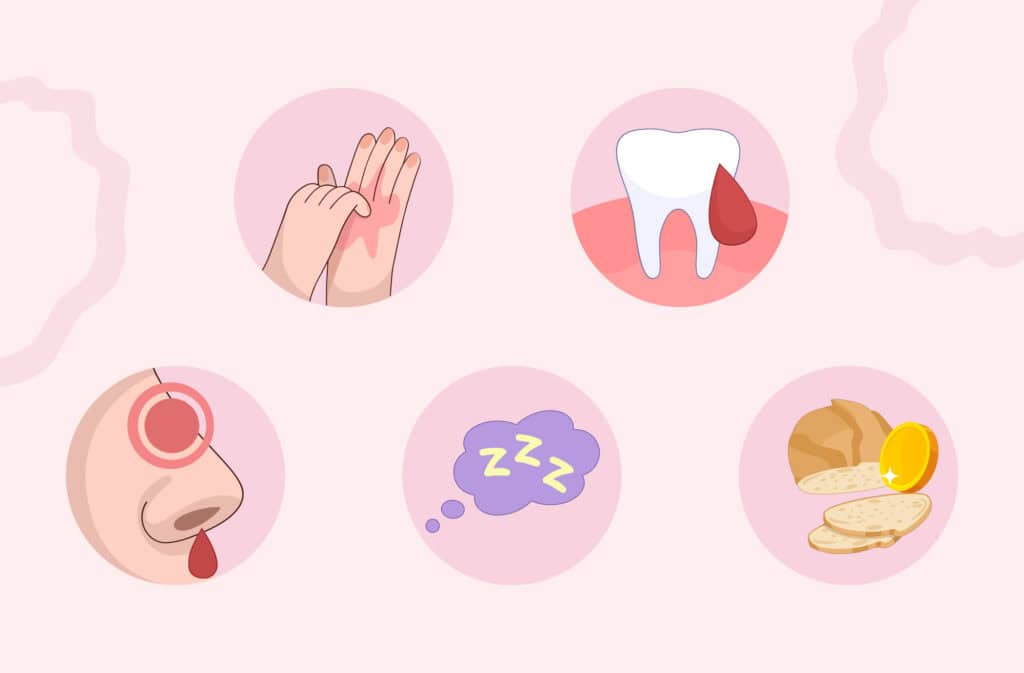
Pregnancy comes with many changes to your body, but some are more of a surprise. Prepare for the journey by learning more about the weird pregnancy symptoms.
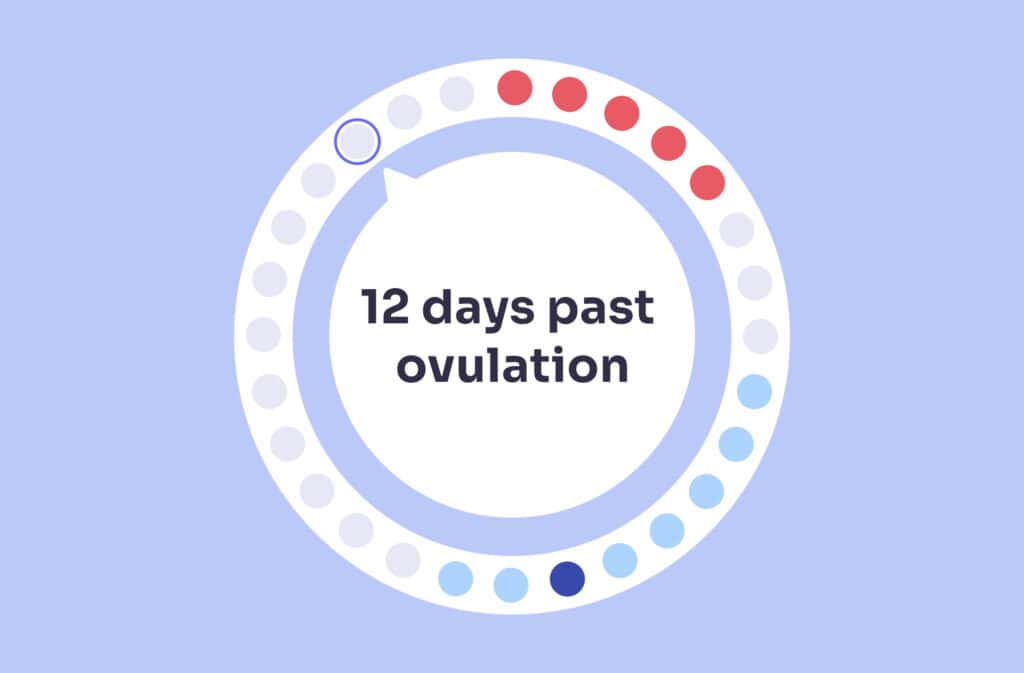
Learn about the symptoms at 12 days past ovulation (12 DPO), including signs of early pregnancy, and discover the best time to confirm with a pregnancy test. Expert advice from Femia.
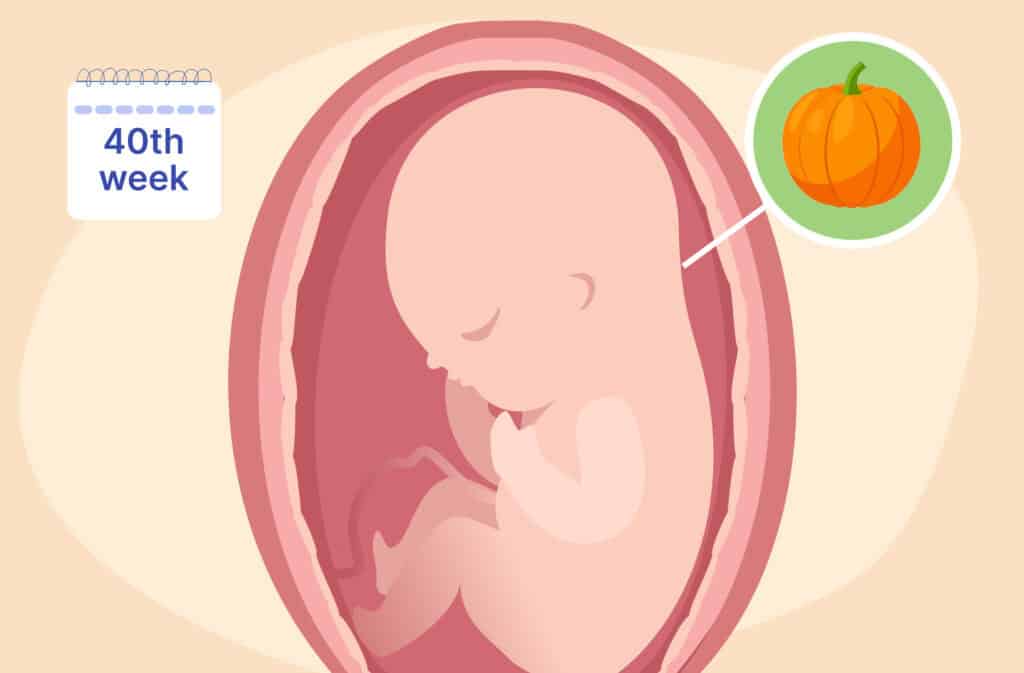
Discover what happens at 40 weeks pregnant, from baby development and symptoms to labor readiness and delivery tips.

